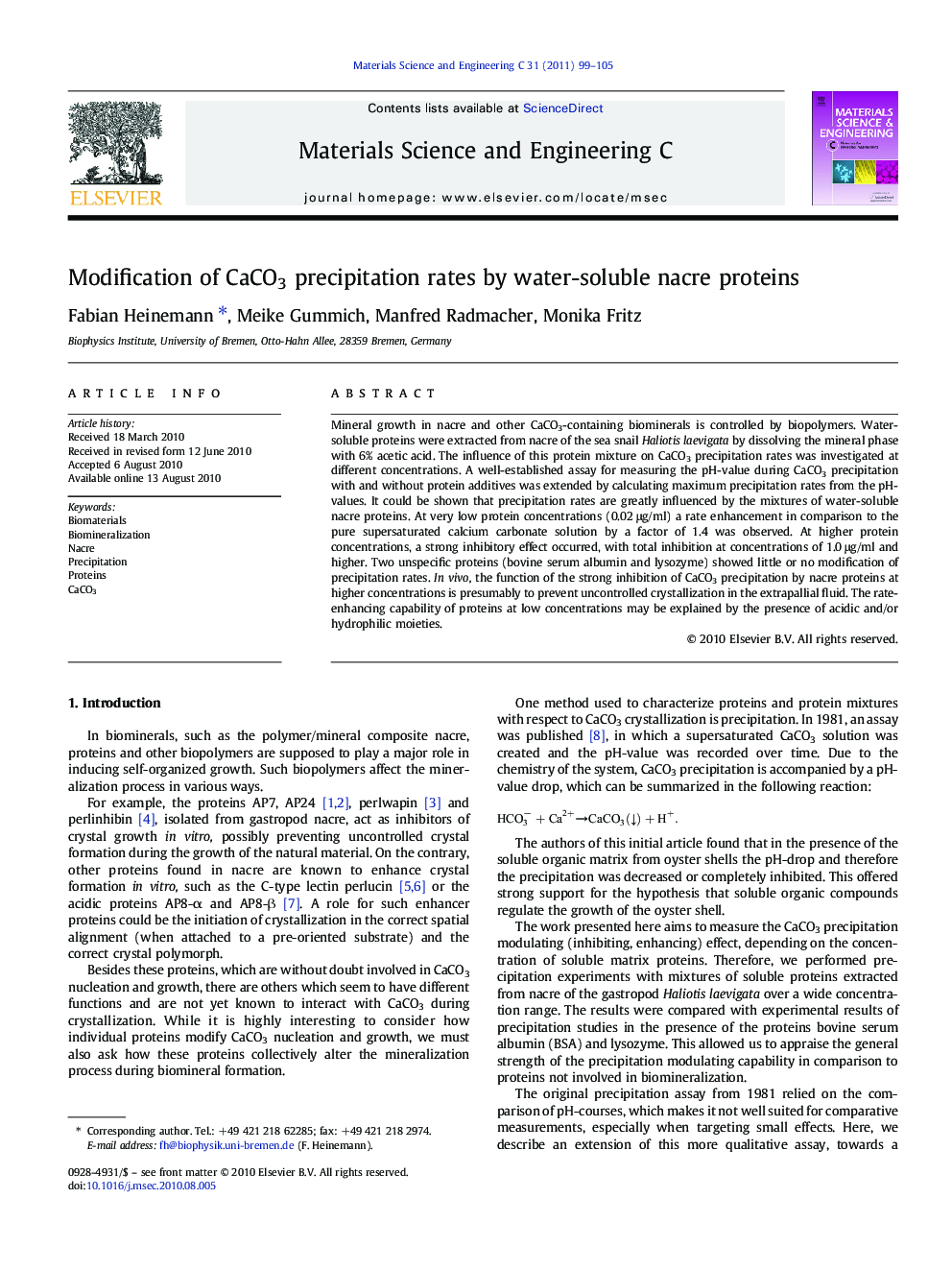| Article ID | Journal | Published Year | Pages | File Type |
|---|---|---|---|---|
| 10614755 | Materials Science and Engineering: C | 2011 | 7 Pages |
Abstract
Mineral growth in nacre and other CaCO3-containing biominerals is controlled by biopolymers. Water-soluble proteins were extracted from nacre of the sea snail Haliotis laevigata by dissolving the mineral phase with 6% acetic acid. The influence of this protein mixture on CaCO3 precipitation rates was investigated at different concentrations. A well-established assay for measuring the pH-value during CaCO3 precipitation with and without protein additives was extended by calculating maximum precipitation rates from the pH-values. It could be shown that precipitation rates are greatly influenced by the mixtures of water-soluble nacre proteins. At very low protein concentrations (0.02 μg/ml) a rate enhancement in comparison to the pure supersaturated calcium carbonate solution by a factor of 1.4 was observed. At higher protein concentrations, a strong inhibitory effect occurred, with total inhibition at concentrations of 1.0 μg/ml and higher. Two unspecific proteins (bovine serum albumin and lysozyme) showed little or no modification of precipitation rates. In vivo, the function of the strong inhibition of CaCO3 precipitation by nacre proteins at higher concentrations is presumably to prevent uncontrolled crystallization in the extrapallial fluid. The rate-enhancing capability of proteins at low concentrations may be explained by the presence of acidic and/or hydrophilic moieties.
Related Topics
Physical Sciences and Engineering
Materials Science
Biomaterials
Authors
Fabian Heinemann, Meike Gummich, Manfred Radmacher, Monika Fritz,
